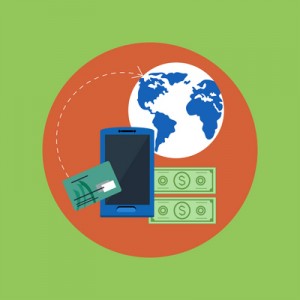
Ranging from minor spyware and adware to complete system lock-outs courtesy of ransomware, infections have become a standard in today’s high-speed electronic age.
Even when using the latest state of the art detection software, the most modern systems are prone to infection.
Some basic low-level forms of adware and spyware are add-ons called toolbars. A toolbar is an add-on to a web browser, putting another bar at the top of your browser window below the address bar.
They can come in several different forms and functions. Some are helpful and pose no threat to your system. Others serve as a reporting tool for the toolbar’s designer.
They can collect data on surfing habits such as websites visited and search topics used. This data is then transmitted back to the designer and sold off to advertisers who, in turn, use the information to start spamming you with their client’s websites and ads.
Building off of the spam generated from the data collected from the adware and spyware, you will start to see more and more pop-ups on webpages and possibly even on your desktop.
Sometimes, these pop-ups are harmless and very easy to remove, but more often, they are the beginning stages of an invasion of malicious programs.
The pop-ups use false and misleading information to scare the user into believing they are already infected and they need to download “their” software to clean the infections.
What ends up happening is that you think you are downloading one program to clean your system, but you are really downloading and installing additional programs in the background.
I have seen instances where one so-called program install downloaded nine additional programs in the background. None of the additional programs had anything to do with “cleaning” or “speeding” up your system. They just wreak havoc on your operating system.
Through these malicious programs, more dangerous infections can occur. High-risk level malware, trojans, and viruses become residents on your system.
From this point forward, you will start to experience extreme slowness or even a complete inability to browse the Internet. You will start to see an increase in spam email and email messages containing attachments or web links to strange web addresses.
The attachments are what you need to be very cautious about. A very high-risk level malware called Crypto is primarily transmitted through these infected attachments. Once infected, the Malware spreads though your system, encrypting all of your data.
After that, there is little hope of recovering any of your data.
Viruses, malware, trojans and malicious programs are lurking on the web at every turn.
The most important thing to remember is “knowledge is power.” Don’t fall victim to the overwhelming number of companies advertising that their products can and will clean your computer of these nasty bugs and speed up the performance of your computer at the same time.
The truth is that the vast majority of these companies will install a ton of “freeware” programs on your system that will bog down your CPU and eat up your memory resources.
Once these programs are installed, get ready for Pop-Up City. It turns into a giant game of Whack-A-Mole just trying to close all the windows and pop-ups generated by these programs.
Several of these programs will also inject a proxy server into your Internet settings. This will severely limit your Internet browsing and even redirect you to predefined webpages in an attempt to lure you into purchasing additional programs to remove the programs you already installed.
For additional information or if you think you may have a virus or spyware infection, contact Tech Experts at (734) 457-5000.

 That way, if your data is comprised either through internal access or external, it will become very difficult to use the data that was stolen.
That way, if your data is comprised either through internal access or external, it will become very difficult to use the data that was stolen. by Jeremy Miller, Technician
by Jeremy Miller, Technician